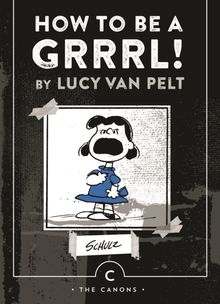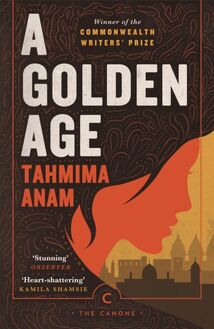Philadelphia Fire , livre ebook
95
pages
English
Ebooks
2018
Vous pourrez modifier la taille du texte de cet ouvrage
Obtenez un accès à la bibliothèque pour le consulter en ligne En savoir plus
Découvre YouScribe en t'inscrivant gratuitement
Découvre YouScribe en t'inscrivant gratuitement
95
pages
English
Ebooks
2018
Vous pourrez modifier la taille du texte de cet ouvrage
Obtenez un accès à la bibliothèque pour le consulter en ligne En savoir plus
Publié par
Date de parution
03 mai 2018
Nombre de lectures
1
EAN13
9781786892058
Langue
English
Publié par
Date de parution
03 mai 2018
Nombre de lectures
1
EAN13
9781786892058
Langue
English
John Edgar Wideman ’s books include Writing to Save a Life , Brothers and Keepers , American Histories , Fatheralong , Hoop Roots and Sent for You Yesterday . He is a MacArthur Fellow and has won the PEN/Faulkner Award twice and has been a finalist for the National Book Critics Circle Award and National Book Award. In 2017, he won the Prix Femina Étranger for Writing to Save a Life . He divides his time between New York and France.
ALSO BY JOHN EDGAR WIDEMAN
Fanon: A Novel
Briefs: Stories
God’s Gym: Stories
The Island: Martinique
Hoop Roots: Basketball, Race, and Love
Two Cities: A Novel
The Cattle Killing: A Novel
Fatheralong: A Meditation on Fathers and Sons, Race and Society
All Stories Are True
The Stories of John Edgar Wideman
Fever: Stories
Reuben: A Novel
Brothers and Keepers: A Memoir
Sent for You Yesterday: A Novel
Damballah: Stories
Hiding Place: A Novel
The Lynchers: A Novel
Hurry Home: A Novel
A Glance Away: A Novel
Writing to Save a Life: The Louis Till File
American Histories: Stories
Published in Great Britain in 2018 by Canongate Books Ltd, 14 High Street, Edinburgh EH1 1TE
canongate.co.uk
This digital edition first published in 2018 by Canongate Books
Copyright © John Edgar Wideman, 1990
First published in 1990 in the United States by Henry Holt and Company
The moral right of the author has been asserted
Every effort has been made to trace copyright holders and obtain their permission for the use of copyright material. The publisher apologises for any errors or omissions and would be grateful if notified of any corrections that should be incorporated in future reprints or editions of this book.
British Library Cataloguing-in-Publication Data A catalogue record for this book is available on request from the British Library
ISBN 978 1 78689 203 4 eISBN 978 1 78689 205 8
To Judy—who teaches me more about love each day
Let every house be placed, if the Person pleases, in the middle of its platt . . . so there may be ground on each side, for Gardens or Orchards or feilds, that it may be a greene Country Towne, wch will never be burnt, and always be wholsome
INSTRUCTIONS GIVEN BY ME WILLIAM PENN, PROPRIETOR AND GOVERNOR OF PENNSYLVANIA, TO MY TRUSTY LOVING FRIENDS . . .
[ 30TH SEPT. 1681 ]
CONTENTS
Part I
Part II
Part III
PART I
O n a day like this the big toe of Zivanias had failed him. Zivanias named for the moonshine his grandfather cooked, best white lightning on the island. Cudjoe had listened to the story of the name many times. Was slightly envious. He would like to be named for something his father or grandfather had done well. A name celebrating a deed. A name to stamp him, guide him. They’d shared a meal once. Zivanias crunching fried fish like Rice Krispies. Laughing at Cudjoe. Pointing to Cudjoe’s heap of cast-off crust and bones, his own clean platter. Zivanias had lived up to his name. Deserted a flock of goats, a wife and three sons up in the hills, scavenged work on the waterfront till he talked himself onto one of the launches jitneying tourists around the island. A captain soon. Then captain of captains. Best pilot, lover, drinker, dancer, storyteller of them all. He said so. No one said different. On a day like this when nobody else dared leave port, he drove a boatload of bootleg whiskey to the bottom of the ocean. Never a trace. Not a bottle or bone.
Cudjoe watches the sea cut up, refusing to stay still in its bowl. Sloshing like the overfilled cup of coffee he’d transported this unsteady morning from marble-topped counter to a table outdoors on the cobblestone esplanade. Coffee cooled in a minute by the chill wind buffeting the island. Rushes of wind and light play with rows of houses like they are skirts. Lift the whitewashed walls from their moorings, billow them as strobe bursts of sunshine bounce and shudder, daisy chains of houses whipping and snapping as wind reaches into the folds of narrow streets, twisting tunnels and funnels of stucco walls, a labyrinth of shaky alleyways with no roof but the Day-Glo blue-and-gray crisscrossed Greek sky hanging over like heavy, heavy what hangs over in the game they’d played back home in the streets of West Philly.
Zivanias would hold his boat on course with his foot. Leaning on a rail, prehensile toes snagged in the steering wheel, his goatskin vest unbuttoned to display hairy chest, eyes half shut, humming an island ballad, he was sailor-king of the sea, a photo opportunity his passengers could not resist. Solitary females on holiday from northern peninsulas of ice and snow, secretaries, nurses, schoolteachers, clerks, students, the druggies who’d sold dope and sold themselves to get this far, this last fling at island sun and sea and fun, old Zivanias would hook them on his horny big toe and reel them in. Plying his sea taxi from bare-ass to barer-ass to barest-ass beach, his stations, his ports of call along the coast.
But not today. No putt-putting around the edges of Mykonos, no island hopping. Suicide on a day like this to attempt a crossing to Delos, the island sacred to Apollo where once no one was allowed to die or be born. No sailing today even with both hands on the wheel and all ten toes gripping the briny deck. Chop, chop sea would eat you up. Swallow your little boat. Spew it up far from home. Zivanias should have known better. Maybe he did. Maybe he couldn’t resist the power in his name summoning him, Zivanias, Zivanias. Moonshine. Doomshine. Scattered on the water.
Cudjoe winces. A column of feathers and stinging grit rises from the cobblestones and sluices past him. Wind is steady moan and groan, a constant weight in his face, but it also bucks and roils and sucks and swirls madly, sudden stop and start, gust and dust devil and dervishes ripping the world apart. Clouds scoot as if they’re being chased. Behind him the café window rattles in its frame. Yesterday at this same dockside table he’d watched the sunset. Baskets of live chickens unloaded. Colors spilled on the sea last evening were chicken broth and chicken blood and the yellow, wrinkled skin of plucked chickens. Leftover feathers geyser, incongruous snowflakes above stacks of empty baskets. The island exiled today. Jailed by its necklace of churning sea. No one could reach Mykonos. No one could leave. Dead sailorman Zivanias out there sea-changed, feeding the fish. Cudjoe’s flight home disappearing like the patches of blue sky. Sea pitches and shivers and bellows in its chains. Green and dying. Green and dying. Who wrote that poem. Cudjoe says the words again, green and dying, can’t remember the rest, the rest is these words repeating themselves, all the rest contained in them, swollen to bursting, but they won’t give up the rest. Somebody keeps switching a light on and off. Gray clouds thicken. White clouds pull apart, bleed into the green sea. A seamless curtain of water and sky draws tighter and tighter. The island is sinking. Sea and wind wash over its shadow, close the wound.
Take that morning or one like it and set it down here in this city of brotherly love, seven thousand miles away, in a crystal ball, so it hums and gyrates under its glass dome. When you turn it upside-down, a thousand weightless flakes of something hover in the magic jar. It plays a tune if you wind it, better watch out, better not cry. Cudjoe cups his hands, fondles the toy, transfixed by the simplicity of illusion, how snow falls and music tinkles again and again if you choose to play a trick on yourself. You could stare forever and the past goes on doing its thing. He dreams his last morning on Mykonos once more. If you shake the ball the flakes shiver over the scene. Tiny white chicken feathers. Nothing outside the sealed ball touches what’s inside. Hermetic. Unreachable. Locked in and the key thrown away. Once again he’ll meet a dark-haired woman in the café that morning. Wind will calm itself, sky clear. The last plane shuttles him to the mainland. Before that wobbly flight he’ll spend part of his last day with her on the beach. There will be a flash of fear when she rises naked from the sea and runs toward him, crowned by a bonnet of black snakes, arms and legs splashing showers of spray, sun spots and sun darts tearing away great chunks of her so he doesn’t know what she is. They’ll lie together on the sand. She will teach him the Greek for her body parts. Hair is . . . eyes are . . . nose is . . . the Greek words escaping him even as he hears them. But he learns the heat of her shoulders, curve of bone beneath the skin. No language she speaks is his. She doubles his confusion. He forgets how to talk. When she tests him, pointing to his eyes, he traces with a fingertip the pit of bone containing hers. He closes his eyes. He is blind. Words are empty sounds. Saying them does not bring her back. He’d tasted salt when he’d matched his word for lips with hers.
Cudjoe is remembering the toy from his grandmother’s cupboard. A winter scene under glass. Lift it by its black plastic base, turn it upside-down, shake it a little, shake it, don’t break it, and set the globe down again watch the street fill up with snow the little horse laugh to see such a sight and the dish run away with the spoon. He wonders what happened to his grandmother’s souvenir from Niagara Falls. When did she buy it? Why did he always want to pry it open and find the music and snow wherever they were hiding when the glass ball sat still and silent? He wanted to know but understood how precious the trinket was to his grandmother. She would die if he broke it. She lay in bed, thinner every day the summer after the winter his grandfather died. She was melting away. Turning to water which he mopped from her brow, from her body parts when he lifted the sheets. Could he have saved her if he’d known the Greek for arms and legs? His grandmother’s sweaty smell will meet him when he returns to the house on Finance and walks up the front-hall stairs and














